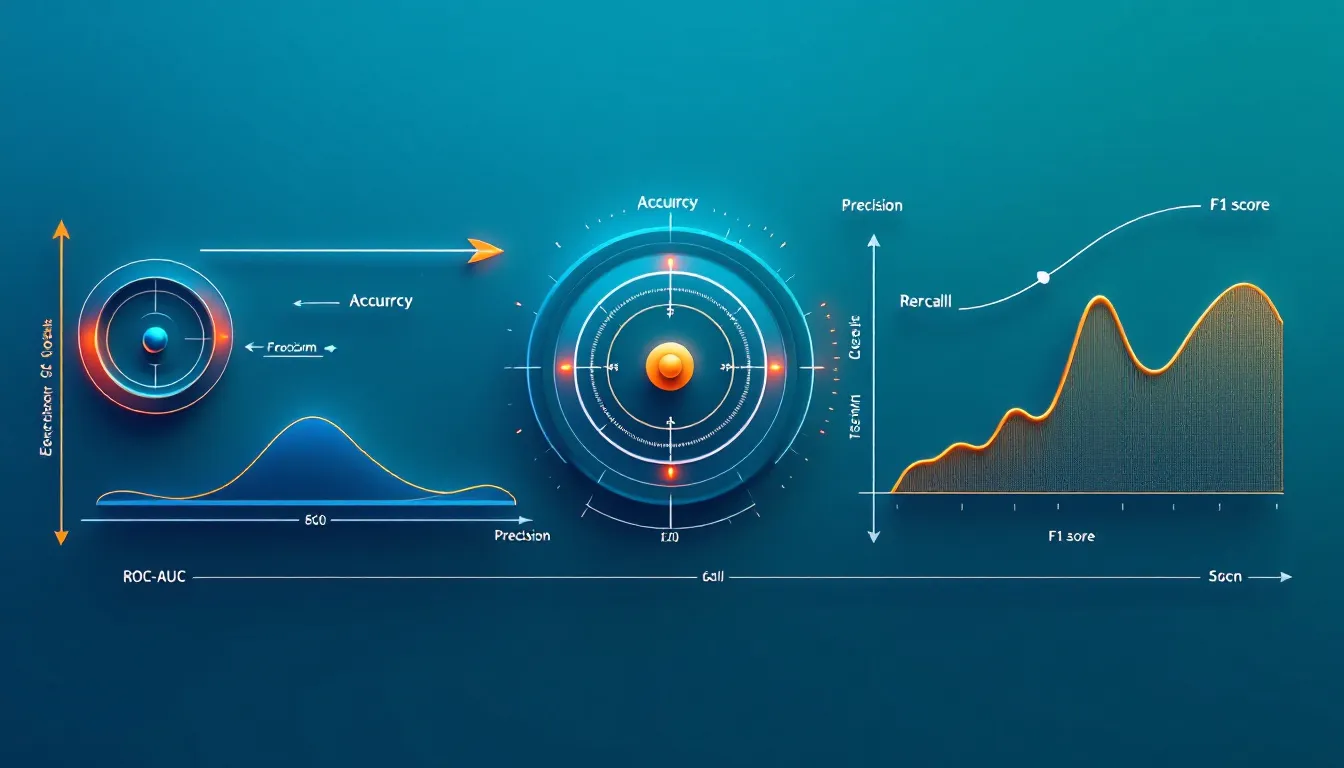Looking for the best business messaging platform in 2024? Here's what you need to know:
Top messaging platforms and their starting prices:
- Slack ($7.25/user/month) - Best for teams needing extensive integrations
- Microsoft Teams ($5/user/month) - Perfect for Microsoft 365 users
- Google Chat ($6/user/month) - Ideal for Google Workspace users
- Pumble ($1.99/user/month) - Budget-friendly option
- Twist ($5/user/month) - Great for remote teams
- Rocket.Chat ($3/user/month) - Best for customization
Must-have features in 2024:
- Team chat with organized channels
- End-to-end encryption
- Integration with business tools
- Customization options
- File sharing capabilities
- Mobile access
| Platform | Price | Best For | Key Feature |
|---|---|---|---|
| Slack | $7.25 | Large teams | 2,400+ integrations |
| MS Teams | $5 | Office users | Microsoft integration |
| Google Chat | $6 | Google users | Workspace integration |
| Pumble | $1.99 | Small teams | Basic features |
| Twist | $5 | Remote work | Thread-based chat |
| Rocket.Chat | $3 | Tech teams | Self-hosting |
How to choose: Pick based on your team size, security needs, and existing tools. Most platforms offer free trials - test before committing.
Bottom line: Your choice should match your communication needs and budget while offering room to grow. Consider security features and integration capabilities as top priorities.
Related video from YouTube
Must-Have Messaging Features
Messaging platforms for businesses need to offer specific tools that support smooth team communication and collaboration. Here's a breakdown of what makes these platforms truly effective in today's fast-paced work environment.
Instant Team Chat
A good team chat feature is more than just basic texting. Modern platforms now offer organized conversation channels, threaded discussions, and smart notifications that cut through unnecessary noise. For instance, Textla’s channel-based system resulted in a 45% improvement in team response times compared to relying on email alone.
"The ability to organize conversations by topic and team has become non-negotiable for businesses seeking efficient communication workflows", says Textellent's product development lead.
Safety and Data Protection
Data security is critical in any communication tool. Reliable platforms should include features like:
- End-to-end encryption to protect messages.
- Role-based access controls, ensuring specific access levels.
- 10DLC compliance for secure business texting.
- Audit trails, allowing detailed tracking of message history.
These tools aren't optional but necessary for protecting sensitive information and complying with regulatory standards. Twilio, for example, processes over 250 billion interactions each year while maintaining an exceptional 99.999% security success rate.
Connecting with Other Tools
How well a messaging tool integrates with existing systems can make or break its effectiveness. Top services offer seamless connections with:
| Integration Type | Examples | Benefits |
|---|---|---|
| Project Management | Jira, Asana, Trello | 40% faster task updates |
| Customer Data | Salesforce, HubSpot | Insights in real time |
| Productivity | Google Workspace, Microsoft 365 | Easy file sharing |
| Development | GitHub, GitLab | Instant code notifications |
These integrations allow teams to reduce workflow friction and stay on top of their tasks without juggling multiple platforms.
Making it Your Own
Customization lets businesses tailor a messaging platform to their exact needs. Some of the most impactful customization options include:
- Adding company branding like logos and color schemes.
- Adjusting notification preferences for better focus.
- Automating workflows to save time.
- Using preset message templates for frequent communications.
According to SimpleTexting, businesses that personalize their messaging platforms achieve 30% higher engagement rates compared to those using out-of-the-box solutions - proof that flexibility can drive both adoption and productivity.
Best Messaging Platforms in 2024
Slack - Complete Team Chat
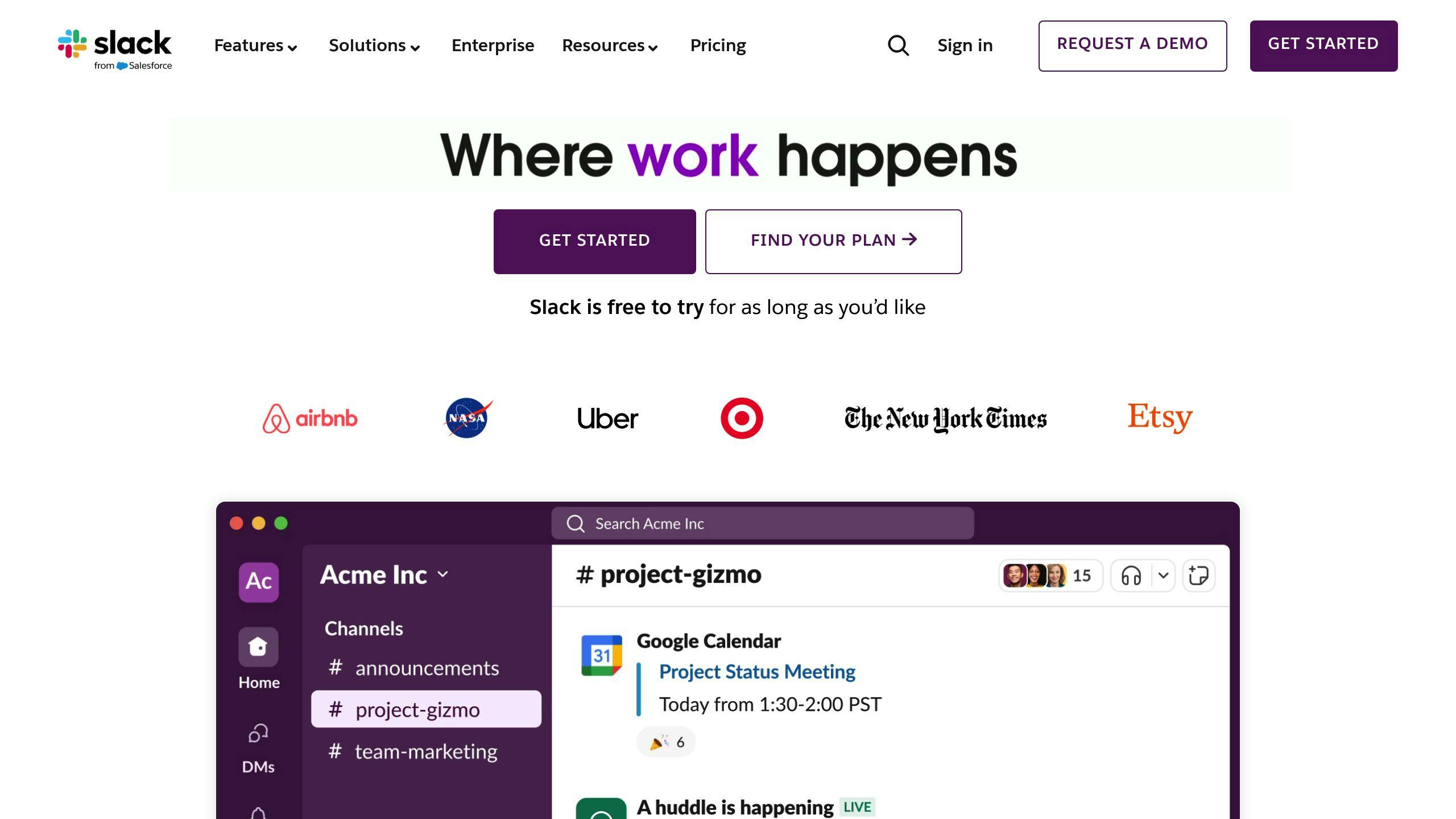
Slack is a popular choice for team messaging, supporting millions of conversations each day for organizations around the world. Its channel-based design lets teams keep discussions organized by project, department, or topic. With more than 2,400 app integrations available, teams can link key tools directly into their workflows. Pricing starts at $7.25 per user per month, making it a scalable solution for growing companies.
"Effective communication is the backbone of any successful team", says Stewart Butterfield, Slack's Co-founder and CEO, emphasizing the platform's goal to improve workplace communication.
Microsoft Teams - Perfect for Microsoft 365 Users
Microsoft Teams is a strong fit for companies already using Microsoft 365. With plans starting at $5 per user per month as part of the Microsoft 365 suite, it delivers both affordability and powerful integration. The platform connects seamlessly with tools like SharePoint, OneDrive, and Office applications, allowing teams to collaborate on and edit documents in real-time without needing to leave the chat interface.
Google Chat - Companion for Google Workspace
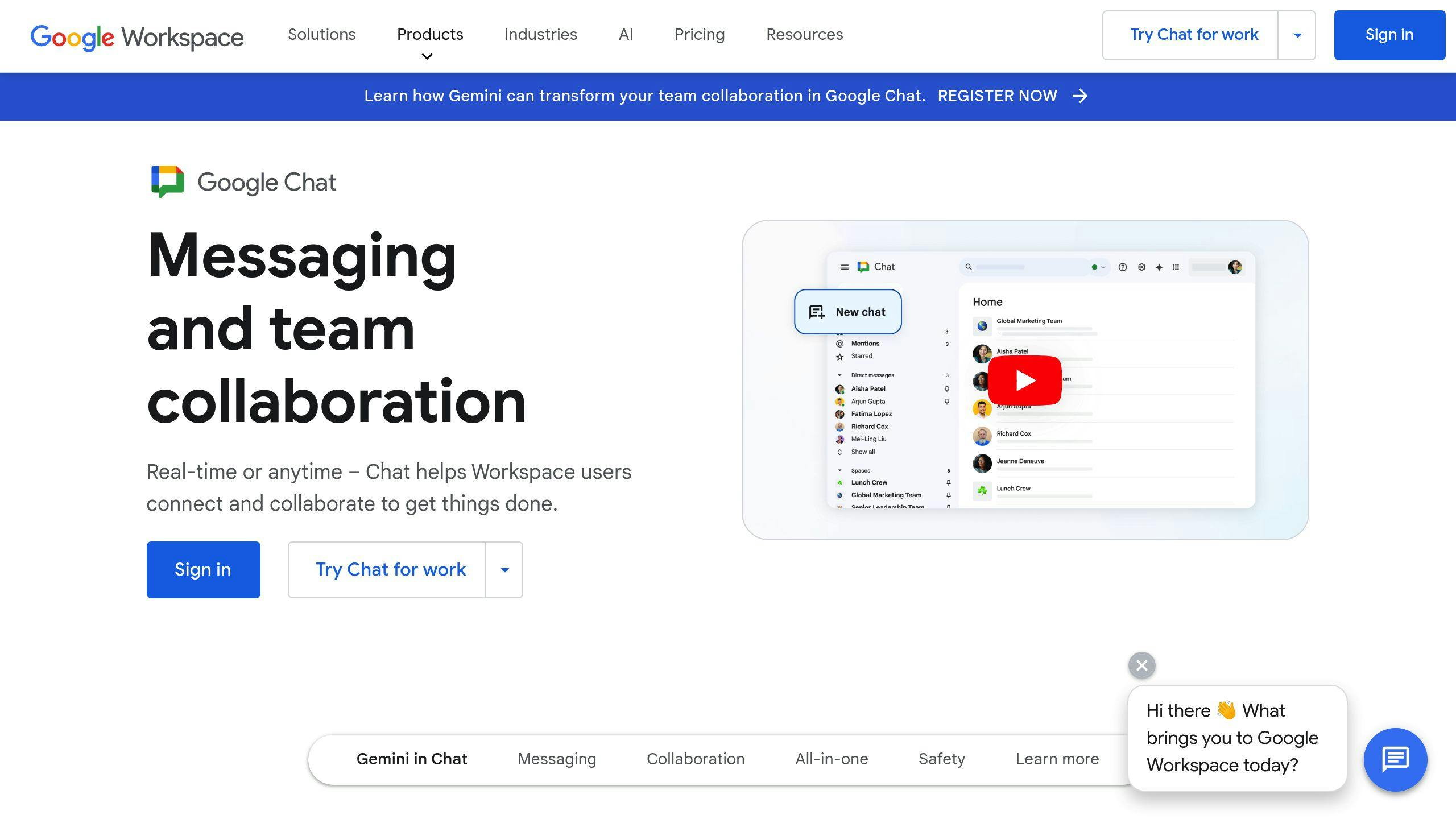
Google Chat works hand-in-hand with Google Workspace, which has plans starting at $6 per user per month. Its tight integration with Gmail, Drive, and other Google services makes it a natural choice for organizations already using Google’s tools. Features like AI-powered smart suggestions help surface relevant files and conversations faster. The simple, clean interface adds to its appeal.
Pumble - Affordable Option
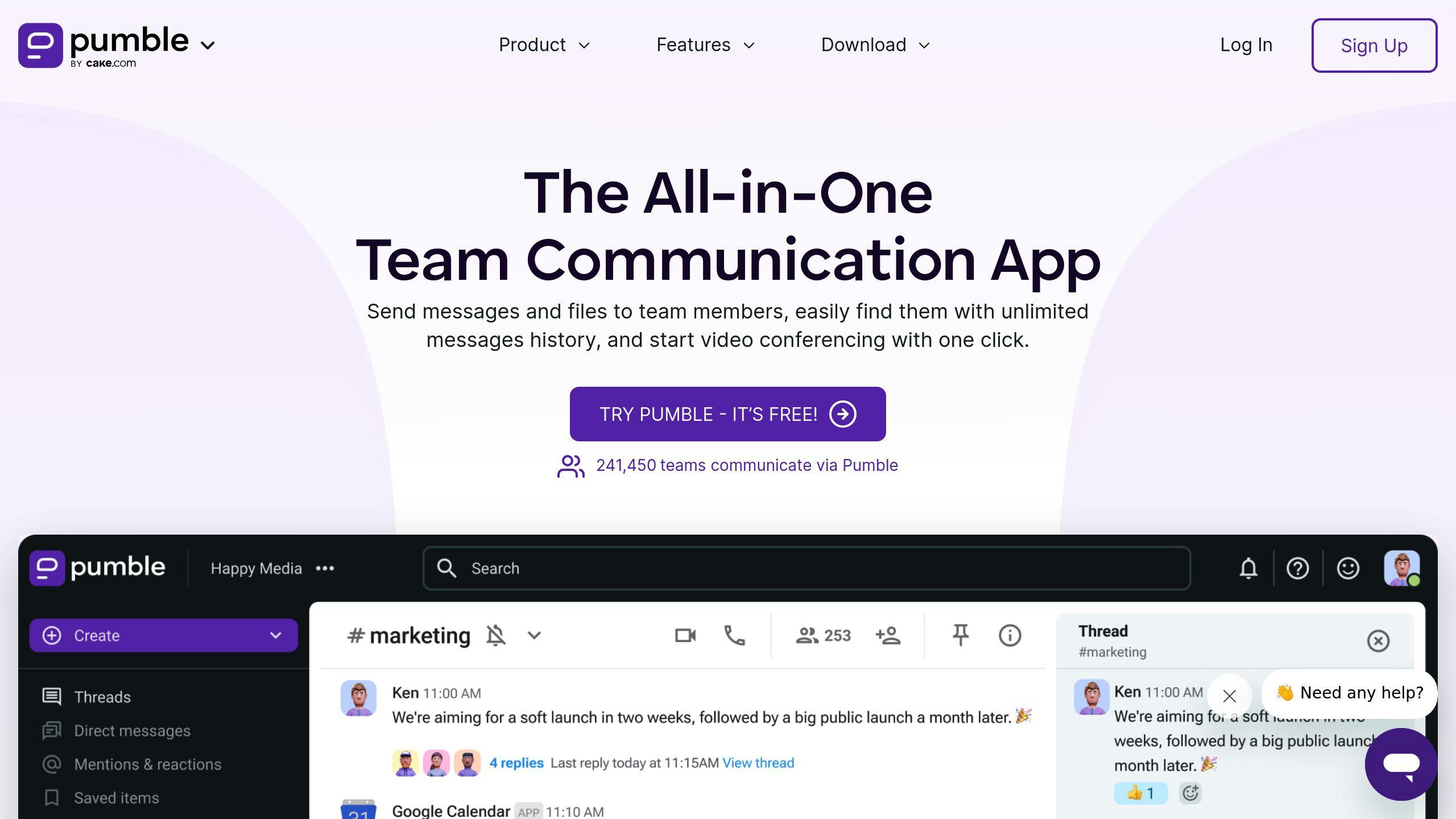
Pumble is among the most budget-friendly platforms on the market, with paid plans starting at just $1.99 per user per month. Even its free tier includes features such as unlimited message history and file sharing, making it a great option for small teams or startups. By focusing on the basics, Pumble keeps costs low while still delivering essential functionality.
Twist - Thread-Based Communication
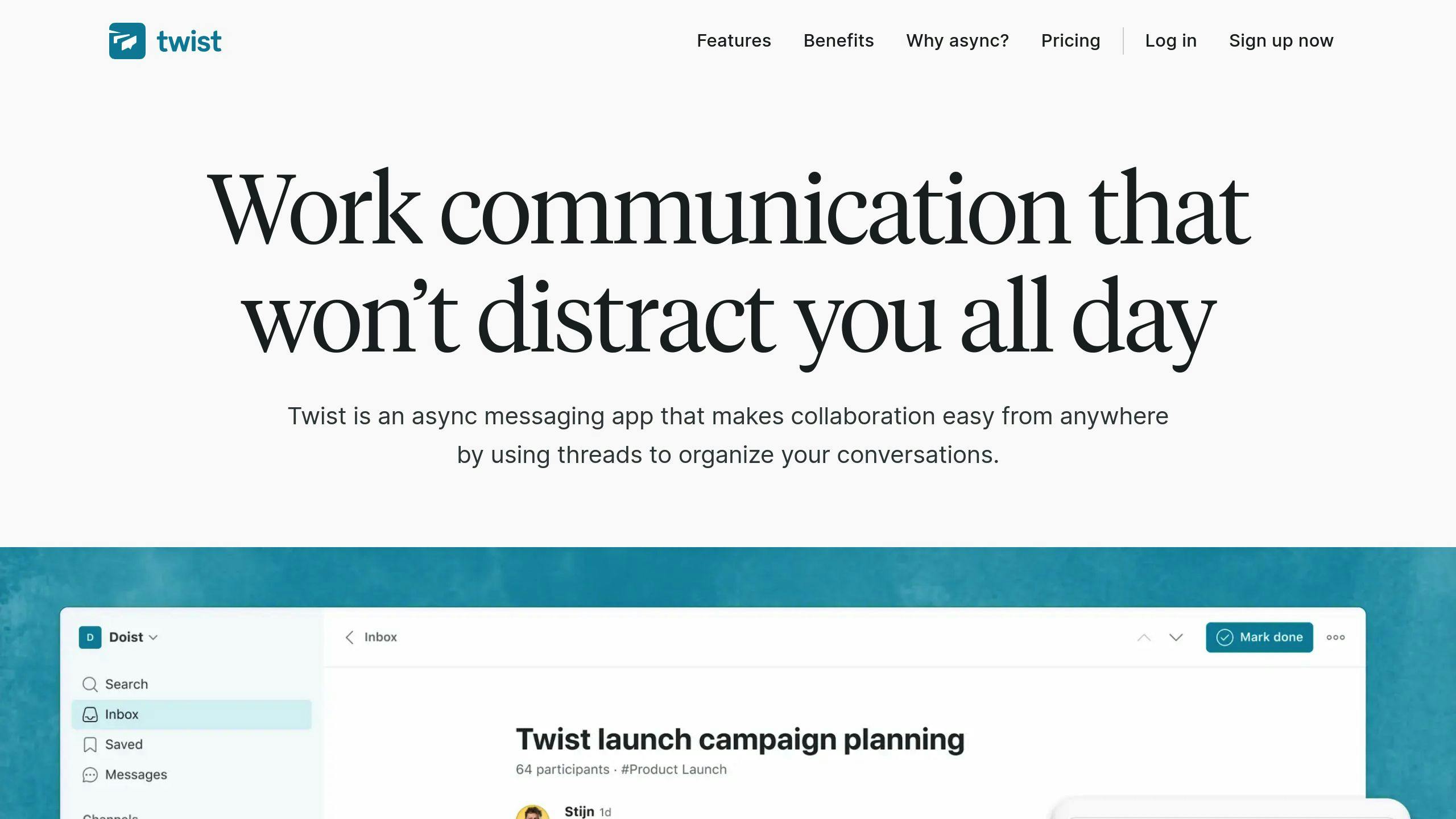
Twist puts an emphasis on clarity by organizing messages into threads, cutting down the chaos found in many other platforms. Starting at $5 per user per month, it’s particularly well-suited for remote teams operating across multiple time zones. Twist’s thread-centric design has been shown to reduce message overload by up to 40%, making it a favorite for teams that rely on asynchronous communication.
Rocket.Chat - Open-Source Customization
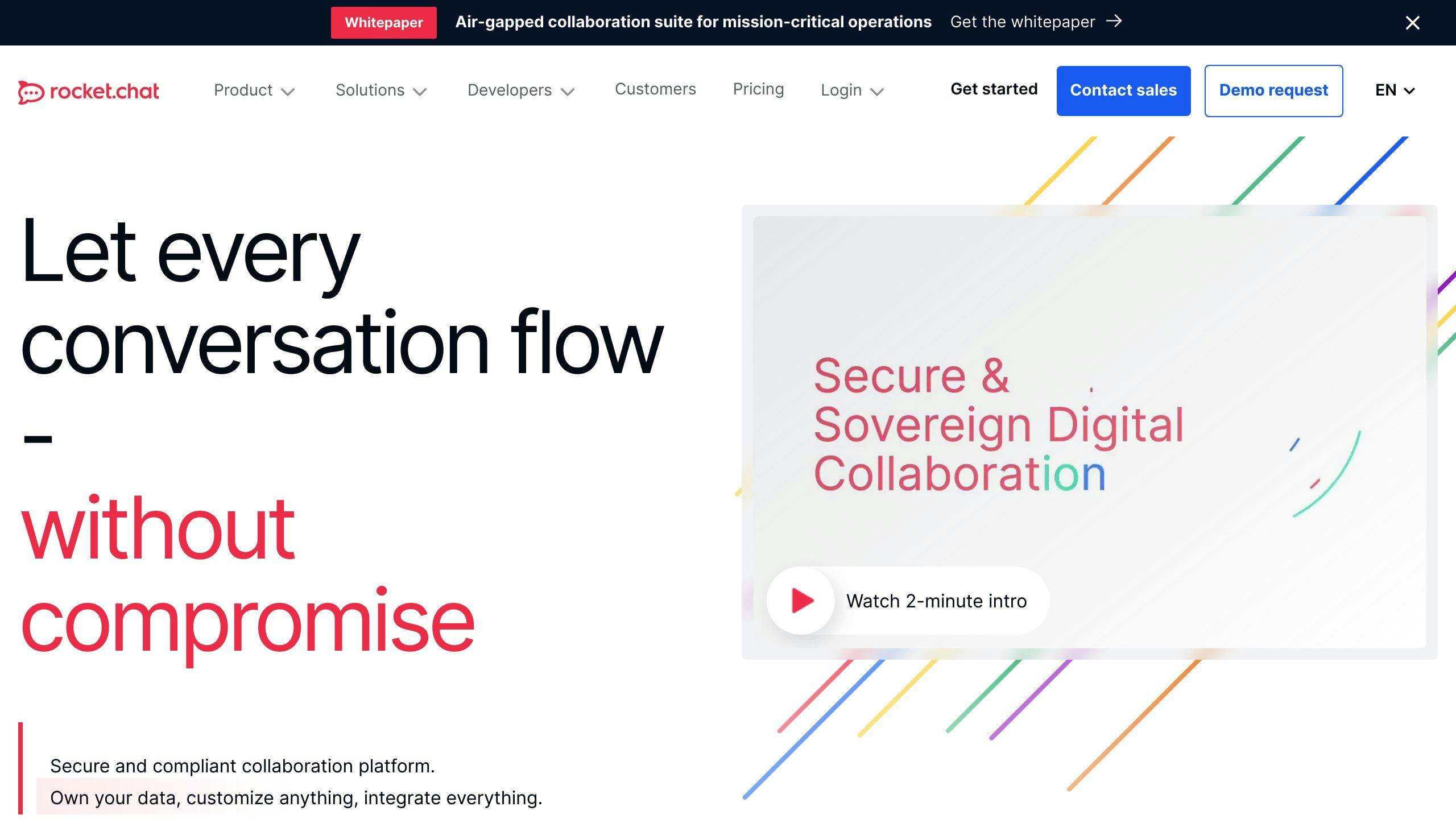
Rocket.Chat stands out for its customizable, open-source framework. For hosted solutions, pricing begins at $3 per user per month. The platform offers unparalleled control over data privacy and security, including self-hosting options. This makes it especially appealing for organizations with specific technical or compliance needs, such as data sovereignty requirements.
| Platform | Starting Price | Best For | Key Integration |
|---|---|---|---|
| Slack | $7.25/user/month | Flexible team messaging | 2,400+ app integrations |
| Microsoft Teams | $5/user/month | Microsoft 365 users | Office suite tools |
| Google Chat | $6/user/month | Google Workspace users | Google apps |
| Pumble | $1.99/user/month | Budget-friendly teams | Basic integrations |
| Twist | $5/user/month | Remote asynchronous teams | Threaded messaging |
| Rocket.Chat | $3/user/month | Custom deployment | Self-hosted solutions |
Picking Your Messaging Platform
What Does Your Team Need?
Start by analyzing how your team communicates and what they truly need to work efficiently. Are you dealing with a large team or just a small group? Do you often hit communication roadblocks? If your team works remotely, look for tools that support asynchronous communication. For industries with sensitive data, prioritize strong security features.
Studies back this up: when messaging platforms fit the team’s actual needs, productivity climbs. For example, Textla found that matching communication tools to team demands led to a 45% drop in email volume and a 32% boost in project completion rates.
Cost vs Features
When weighing your options, balance the platform’s cost against the features your team can’t function without. For instance, Pumble offers basic tools for $1.99 per user monthly, but if you need advanced integrations, Slack starts at $7.25 per user monthly. Ask yourself: What’s more important for your team - strong security, integration with your favorite apps, or the ability to grow effortlessly with your business?
"Choosing the right messaging platform can significantly impact team productivity and collaboration." - John Smith, IT Manager, Tech Insights, 2023.
Here’s a quick breakdown of typical pricing tiers and what they usually include:
| Feature Tier | Typical Cost Range | What's Included |
|---|---|---|
| Basic | $1-3/user/month | Chat, file sharing, essential security |
| Business | $5-8/user/month | Enhanced security, app integrations, APIs |
| Enterprise | $12+/user/month | Customized features, advanced admin controls |
Try Before You Buy
A trial run can save you headaches down the road. Most platforms let you test their tools for free or offer a demo version. Use these opportunities to involve a small group across different departments or roles. Focus on how well the platform fits into your team’s workflow during this trial, and ask questions like:
- How quickly are people adopting it, and what’s the feedback?
- Does it integrate seamlessly with tools you’re already using?
- How does it perform on different devices and networks?
- Are the security features holding up to your standards?
Research shows that companies that test their chosen platform with at least 20% of their staff not only deploy faster - by up to 60% - but also see higher satisfaction levels across the board. Trying before committing is well worth the effort.
sbb-itb-645e3f7
Platform Features Side by Side
Comparing the top business messaging platforms reveals clear differences in what they offer and their overall value. While some platforms shine in niche areas, others are built to provide a broader range of tools.
Features List
Here’s a breakdown of how major platforms perform across key categories:
| Platform | Core Messaging Features | Integration Capabilities | Security Level | Monthly Cost |
|---|---|---|---|---|
| Slack | Advanced threading, channels, file sharing, search | Over 2000 app integrations, Microsoft 365, Google Drive | Enterprise-grade, 2FA | $7.25/user |
| Microsoft Teams | Video calls, chat, channels, file collaboration | Integrated with Microsoft 365 suite, SharePoint | End-to-end encryption, compliance tools | Part of Microsoft 365 bundle |
| Google Chat | Simple chat, spaces, threaded conversations | Google Workspace apps | 2FA, admin controls | Part of Workspace bundle |
| Pumble | Basic chat, file sharing, search | Limited third-party apps | Standard security | $1.99/user |
| Twist | Thread-focused messaging, organized discussions | Basic integrations | Standard encryption | $5/user |
| Rocket.Chat | Self-hosted chat, customizable features | API-based integrations | End-to-end encryption | Custom pricing |
Platforms like Slack and Microsoft Teams stand out for their ability to integrate with a wide array of apps and services. For instance, Slack’s compatibility with over 2,000 integrations, including Google Drive and Microsoft 365, provides users with extensive workflow options. Similarly, Microsoft Teams' deep integration with the entire Microsoft 365 suite makes it a powerhouse for companies already using those tools.
A real-world example of how these capabilities can affect company performance is seen in AkzoNobel's use of advanced messaging tools through Sprinklr Service. By adopting the right platform, they cut response times from nearly 6 hours to under an hour.
"The right messaging platform isn't just about features – it's about how those features translate to real business outcomes. When AkzoNobel UK implemented our solution, they generated recommendations worth over £13,000 in just months." - Sprinklr Service Case Study, 2024
Security is another area where platforms differ widely. All platforms offer basic protections, but enterprise-focused solutions like Microsoft Teams and Slack add advanced measures like end-to-end encryption and robust admin controls. These options often make a big difference for larger organizations, where strong security protocols and precise data management are essential.
When considering cost, options vary greatly depending on need. For smaller teams with limited resources, Pumble offers a highly affordable $1.99 monthly plan per user. On the other hand, organizations seeking more advanced tools might see the value in Slack's $7.25/month per user pricing. The challenge lies in finding the platform that aligns with both your budget and feature requirements.
What You Get from Team Messaging
Better Teamwork
Team messaging platforms have completely changed how businesses collaborate, especially in today’s remote-focused workplaces. They make communication effortless across different time zones and departments, removing barriers that often slow down productivity. This means teams can coordinate more effectively, share ideas instantly, and make quicker decisions - all of which help projects move forward smoothly.
These platforms are now a core part of keeping teams connected. With features like instant messaging, file sharing, and collaborative spaces, employees can stay in sync whether they’re working from home or at the office. Plus, creating dedicated channels for specific projects or departments helps keep conversations organized and ensures the right people stay informed.
"Messaging allows customers to explain issues and unique needs elaboratively with media support, which enables brands to offer more personalized resolutions." - Sprinklr, Customer Service Messaging Guide.
Room to Grow
One major perk of today’s messaging platforms is how easily they can scale as businesses grow. Whether you’re adding more team members or branching into new functions, these solutions adapt without causing disruptions. They’re also designed to work seamlessly across devices, letting employees connect on their preferred platforms while sticking to security protocols.
Scalability isn’t just about adding users - it’s also about expanding capabilities. Most platforms allow integrations with other tools, letting businesses create advanced communication systems that fit their evolving needs. This flexibility means your investment in a messaging solution stays useful and relevant as your organization changes and grows.
Working with Marketing Tools
Messaging platforms shine when paired with marketing tools. By connecting them through Content and Marketing's directory, teams can integrate their tools directly into their chat platform. This creates a streamlined workflow where marketers can manage campaigns, share content, and analyze results without needing to jump between multiple apps.
For example, when a team collaborates on campaign planning or content creation, they can access everything they need within their messaging platform. This setup cuts down on time wasted switching between platforms while ensuring everyone has up-to-date tools and information.
With AI-driven features and seamless marketing tool integrations, these platforms are a game-changer for marketing teams. Automated updates, smoother approval processes, and better coordination across departments allow teams to work smarter and stay aligned on their goals.
Wrap Up
Tips for Choosing
Choosing the right messaging platform is more important than ever as remote work continues to shape how businesses operate. The team collaboration software market is growing steadily, projected at 13.4% annually through 2028, making it critical to consider factors that meet your organization's needs for the long haul. Start by focusing on security - review each platform's data protection measures, encryption protocols, and compliance with industry standards before committing.
Next, think about how the platform will integrate into your team's existing workflow. The best options align with your current tools and are easy for employees to pick up. This is especially relevant since 75% of employees prefer messaging tools over email for workplace communication. Consider whether the platform can grow with your organization and whether it integrates well with essential business apps.
"The shift to remote work has fundamentally changed how teams communicate, making the choice of a messaging platform more critical than ever for business success." - Global Team Collaboration Report 2024
Using Tool Directories
Finding the right mix of tools can feel overwhelming, which is where specialized directories come in handy. For example, Content and Marketing's directory provides an in-depth look at messaging platforms alongside other marketing and collaboration tools. This can help you build a tech stack that not only improves communication but also supports broader business goals.
When browsing these directories, prioritize platforms that offer trial periods. This allows you to test their features under real-world conditions. Platforms like Slack, for instance, offer a free tier in addition to paid plans starting at $7.25 per user per month. Similarly, Microsoft Teams and Google Chat include basic functionalities in their workspace subscriptions, making it easy to test out integrations with other tools you already use.
Keep both your current needs and future growth in mind. Make sure your chosen platform can keep up as your team scales. Seek features like robust APIs and pre-built integrations with popular tools to ensure your messaging platform can serve as a central hub for collaboration and workflow management. This balance will help your team stay productive and connected as workplace demands evolve.
FAQs
What apps do businesses use to communicate?
In 2024, businesses have a wide array of communication apps tailored to different needs. Slack remains a favorite for teams requiring strong integration capabilities and a chat-driven approach. Microsoft Teams is the go-to platform for larger enterprises, especially those already leveraging the Microsoft 365 suite. For businesses relying on Google tools, Google Chat pairs seamlessly with other Workspace apps.
| Platform | Best For | Key Advantage |
|---|---|---|
| Slack | Collaborative teams | Extensive integrations |
| Microsoft Teams | Large organizations | Works well with Microsoft 365 |
| Google Chat | Google ecosystem users | Streams smoothly with Workspace apps |
| Pumble | Small businesses | Economical solution |
| Rocket.Chat | Tech companies | Open-source and flexible |
| Twist | Distributed teams | Clear and structured threading |
Which application is used for instant communication and online meetings?
The right platform depends on your organization’s size, tech setup, and communication needs. Microsoft Teams stands out in enterprise settings, offering seamless chat and high-quality video conferencing solutions. For Google Workspace users, Google Chat paired with Google Meet provides an efficient combination for instant messaging and video calls.
"Messaging allows customers to explain issues and unique needs elaboratively with media support, which enables brands to offer more personalized resolutions." - Sprinklr Blog
We’re also seeing a huge move toward unified messaging platforms. Consider this: WhatsApp has 2 billion active users, and Facebook Messenger has 931 million users. These numbers highlight the shift to messaging-based communication. Businesses need to focus on tools that fit smoothly with their existing workflows while offering must-haves like two-way messaging, auto-replies, and essential app integrations.

